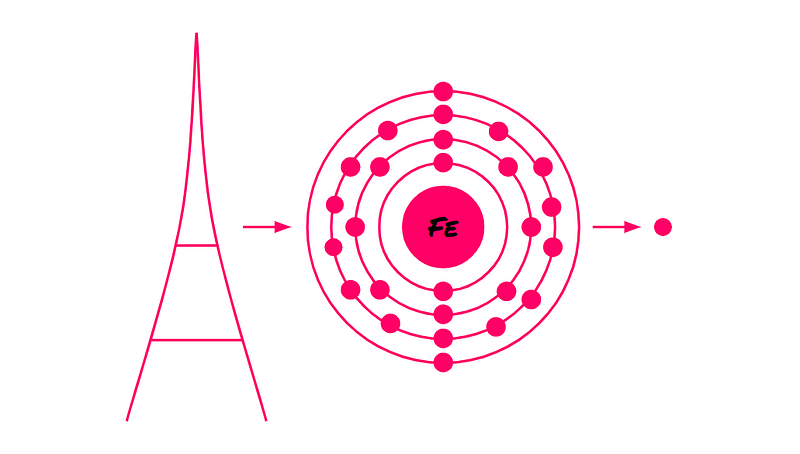# Debunking the Argument: "Space Doesn't Exist" by Rebel Science
Written on
Chapter 1: Understanding the Argument
Rebel Science posits that space is a non-existent entity, claiming they can prove this with a single question: if space is real, what is it composed of? This argument suggests that because space lacks a material composition, it cannot be considered real. While this presents an intriguing perspective, it can be easily challenged.
The notion that everything must consist of something else leads to an absurd conclusion: if that were the case, nothing could truly exist. The question "What is space made of?" is misguided when determining its existence. Let’s entertain the idea that existence requires composition and explore its implications.
For instance, consider the Eiffel Tower. What material constitutes it? Iron. But what is iron made of? Iron atoms (Fe). Delving deeper, we ask what these atoms consist of: protons, neutrons, and electrons. Further inquiry reveals that protons and neutrons are composed of quarks. But what about quarks?

At present, we find that quarks and electrons are deemed fundamental particles. Even if future discoveries reveal they are not, something must be fundamental at some level. The inquiry cannot continue indefinitely without hitting a foundational entity. For the sake of this discussion, let’s assume quarks and electrons are those basic building blocks.
According to Rebel Science’s reasoning, if quarks and electrons are not composed of anything, they cannot exist. This leads to a significant contradiction: if quarks are non-existent, protons and neutrons cannot exist either. This contradiction escalates: if protons, neutrons, and electrons are not real, then atoms don’t exist, and consequently, the Eiffel Tower itself ceases to exist.
Since we know the Eiffel Tower is indeed real, our initial assumption must be incorrect: existence does not depend on composition.
Chapter 2: The Infinite Regress Dilemma
Rebel Science further argues that space presents an infinite regress problem: if all objects exist within space, then one must ask where space itself resides. This leads to the need for a "meta-space" for space, and then a "meta-meta-space" for the meta-space, ad infinitum. Hence, they conclude that space is merely a construct of our minds.
However, this reasoning falls victim to the fallacy of composition. Just because everything that occupies space is contained within it does not necessitate that space itself must exist in a higher form of space. For example, while every atom that makes up the Eiffel Tower is smaller than a mouse, it does not imply that the Eiffel Tower itself is smaller than a mouse, despite being composed of those atoms.
I will refrain from addressing other inaccuracies in Rebel Science’s claims—such as the assertion that gravity operates instantaneously rather than at the speed of light—since their main arguments have already been effectively challenged.
Thank you for taking the time to read this analysis! If you appreciate this content and wish to support future work, please consider contributing through Patreon.